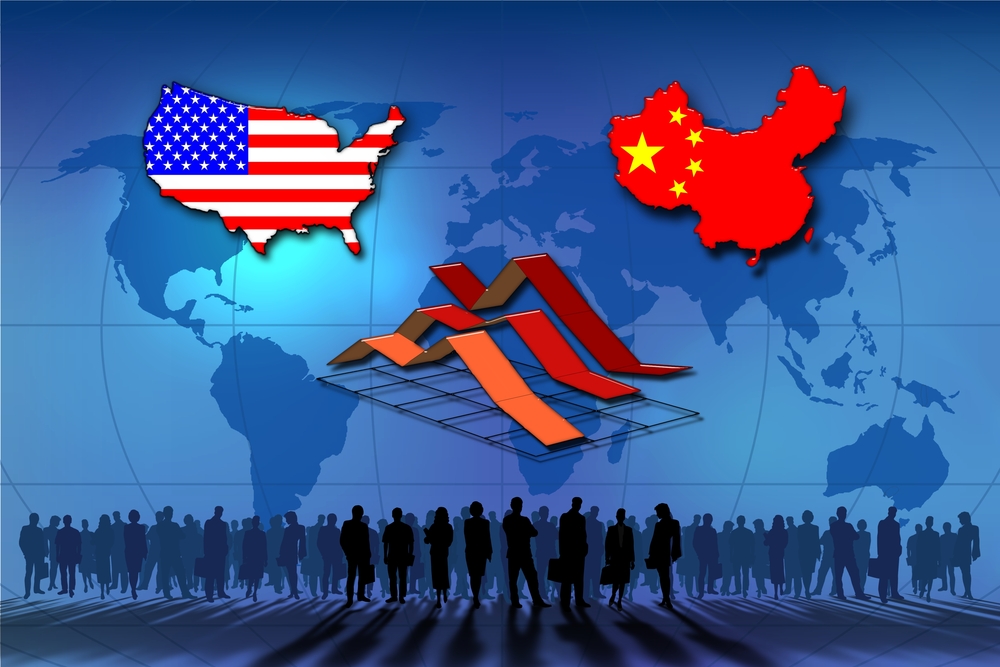U.S. Candidates Ratchet Up the Hyperbole ahead of Xi Visit

Please note that we are not authorised to provide any investment advice. The content on this page is for information purposes only.
Another year of presidential campaigns, another round of China bashing. In the wake of China’s stock market crash in August 2015, Republican presidential candidates have turned their attention towards China. Citing China’s ‘active manipulation’ of its economy as contributing to its own ‘Black Monday’, candidate Scott Walker demanded US President Barack Obama cancel Chinese President Xi Jinping’s upcoming state visit.
Another year of presidential campaigns, another round of China bashing. In the wake of China’s stock market crash in August 2015, Republican presidential candidates have turned their attention towards China. Citing China’s ‘active manipulation’ of its economy as contributing to its own ‘Black Monday’, candidate Scott Walker demanded US President Barack Obama cancel Chinese President Xi Jinping’s upcoming state visit. Chris Christie, after arguing in June for ‘military action’ in the South China Sea, also blamed America’s own market woes on Obama’s borrowing from China. Donald Trump turned to Instagram to warn that the Chinese are ‘taking our jobs, they’re taking our money… be careful, they’ll bring us down’.
Although inflammatory and emotive, there is nothing new about this fear mongering. As The Economist quipped during the 2012 presidential campaign, with a nod to Jane Austen, ‘it is a truth universally acknowledged that a man in possession of a major American political party’s presidential nomination must be in want of a more assertive policy on China’. While Hilary Clinton may upend the gender assumptions in this claim, we can only expect the rhetoric to continue into 2016 once the candidates for both parties are decided.
In August, Marco Rubio ramped things up when he penned an op-ed in the Wall Street Journal. In it, he accused President Obama of ‘appeasement’ towards China, evoking Neville Chamberlain’s 1938 Munich agreement with Adolf Hitler and the ineffectiveness and weakness it has come to represent. Rubio declared that if he were president he would deal with China with ‘strength and example’ such as by downgrading President Xi’s to a working visit rather than a full-scale state visit. This was a suggestion that the White House’s press secretary Josh Earnest dismissed as sounding like ‘a proposal from somebody who’s running to be social secretary of the White House, not president of the United States’.
The idea that a formal state reception is capitulating to China’s leaders — whom Rubio has dubbed tyrants — undermines the significant potential that could come from President Xi’s first official state visit. The visit, due to take place in late September, would reciprocate Obama’s trip to Beijing in November 2014. At the 2014 meeting, the two leaders announced an agreement committing both countries to control their greenhouse gas emissions. While implementation of this agreement is a different, highly fraught ballpark, the coming meeting could — and should — build on this momentum. For this reason alone, Walker’s calls for Obama to cancel the trip and Rubio’s for it to be downgraded would foreclose the possibilities that such high-level dialogue brings.
Of course, there is a difference between the rhetorical posturing of presidential campaigns and the realities of political office, as Ronald Reagan discovered after he won office in 1980. Rubio’s analogous references to Munich may be more symbolic than substantive. China is not Nazi Germany, Obama is not Chamberlain, and Rubio knows this. Indeed, Rubio wrote in the Journal, as President he ‘would respond not through aggressive retaliation, which would hurt the US as much as China, but by greater commitment and firmer insistence on free markets and free trade’. He would do so, he claimed, by expediting the Trans-Pacific Partnership — a policy stance that does little to distinguish himself from Obama.
Yet symbolism matters and Rubio’s language of appeasement raises bigger questions about historical analogies used by the wider commentariat on US–Chinese relations. In addition to Munich, US policy hawks frequently invoke a second historical analogy in their commentary on US–Chinese relations: Europe on the eve of World War I. Many realists, including University of Chicago’s John Mearsheimer, assert that just as the economic interdependence between Britain and Germany did not diffuse the escalating tensions leading up to the war, neither will the present Sino–American economic interdependence provide enough mutual interests to deter military confrontation.
This analogy both underestimates and undermines the power of contingency. It is usually accompanied by calls for an aggressive, more militaristic US–China policy — a provocation that could lead to conflict becoming a self-fulfilling prophecy. This use of history matters because it can provide a veneer of academic justification for the kind of political posturing we’re seeing from the Republican candidates.
Black Monday in August was a reminder of the mutual stakes that both countries have in their economic interdependence. It shows that now more than ever the two countries need to engage with, rather than punish, one another. This means that President Xi’s state visit should not only go ahead as planned but should be seized by Obama as a chance to strengthen bilateral ties.
US presidential campaign must not undermine Xi’s state visit is republished with permission from East Asia Forum




